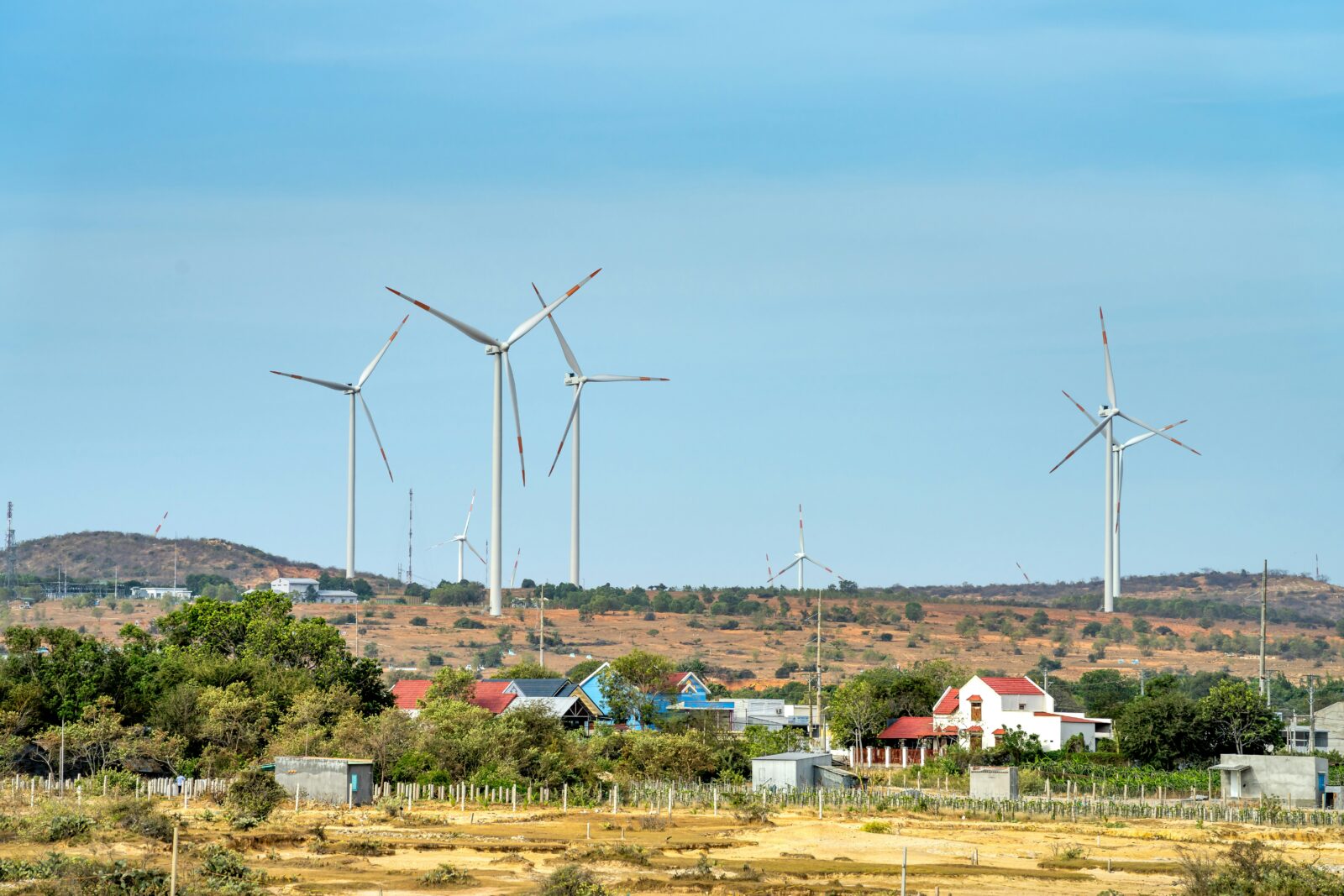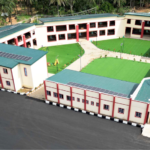- Home
- Features
- Startup Zone
- Projects
- Policies
- Shop
- Policies
- Projects
- Startup Zone
- Country Spotlight
- Analysis
- Tech
- Policies
- Projects
- Startup Zone
- Country Spotlight
- Analysis
- More
- Beyond the Kalashnikov: Africa’s Shift Toward Technology-Driven Warfare
- Afrail Express: Uniting a Continent on Rails
- AFRICA’S ENERGY CORRIDORS: CONNECTING POWER, PEOPLE, AND PROSPERITY
- Startup Lions Campus: Empowering Kenya’s Digital Generation
- L’Art de Vivre’s Le Paradis de Mahdia: Tunisia’s Model for Sustainable Luxury
- The Lobito Corridor: Rewiring Africa’s Trade Arteries Through Strategic Infrastructure
- AFRICA’S GREEN ENERGY TRANSITION: A BEACON OF HOPE FOR CLIMATE ACTION
- Dangote Refinery: Showcasing Africa’s Project Success Story
- AFRICA GREEN ECONOMY: ALL YOU NEED TO KNOW
- The Most Important Amicus Brief in the History of the World
- The Rise of Indigenous UAVs: Africa’s Drone Capabilities in Warfare and Surveillance
- AFRICA’S LARGEST OIL PRODUCERS: A COMPREHENSIVE OVERVIEW
- Beyond the Kalashnikov: Africa’s Shift Toward Technology-Driven Warfare
- Afrail Express: Uniting a Continent on Rails
- AFRICA’S ENERGY CORRIDORS: CONNECTING POWER, PEOPLE, AND PROSPERITY
- Startup Lions Campus: Empowering Kenya’s Digital Generation
- L’Art de Vivre’s Le Paradis de Mahdia: Tunisia’s Model for Sustainable Luxury
- The Lobito Corridor: Rewiring Africa’s Trade Arteries Through Strategic Infrastructure
- AFRICA’S GREEN ENERGY TRANSITION: A BEACON OF HOPE FOR CLIMATE ACTION
- Dangote Refinery: Showcasing Africa’s Project Success Story
- AFRICA GREEN ECONOMY: ALL YOU NEED TO KNOW
- The Most Important Amicus Brief in the History of the World
- The Rise of Indigenous UAVs: Africa’s Drone Capabilities in Warfare and Surveillance
- AFRICA’S LARGEST OIL PRODUCERS: A COMPREHENSIVE OVERVIEW
- Beyond the Kalashnikov: Africa’s Shift Toward Technology-Driven Warfare
- Afrail Express: Uniting a Continent on Rails
- AFRICA’S ENERGY CORRIDORS: CONNECTING POWER, PEOPLE, AND PROSPERITY
- Startup Lions Campus: Empowering Kenya’s Digital Generation
- L’Art de Vivre’s Le Paradis de Mahdia: Tunisia’s Model for Sustainable Luxury
- The Lobito Corridor: Rewiring Africa’s Trade Arteries Through Strategic Infrastructure
- Startup Zone
Top Insights
Navigating Africa’s Complex Renewable Energy Laws

Africa stands at the precipice of a transformative era in renewable energy fueled by abundant natural resources, increasing energy demands, and a growing acknowledgement of the need to combat climate change. However, as nations on the continent pivot towards cleaner energy sources, navigating the complex regulatory frameworks, licensing requirements, and socio-economic landscapes poses notable challenges for investors and developers.
The Regulatory Landscape: A Maze of Compliance
Diverse and often intricate regulatory frameworks that vary significantly from country to country characterised the renewable energy landscape in Africa. Understanding these complexities is vital for anyone looking to enter the market.
READ ALSO: Gas, Grids and Green Hydrogen: Mapping Africa’s Diverse Energy Future
1. Permitting and Licensing Processes: Each African nation has its own set of licensing requirements and permitting processes for renewable energy projects. These regulations can be extensive, involving numerous governmental bodies at both national and local levels. In countries like Nigeria, for instance, the complexity of securing the necessary approvals may lead to significant delays in project initiation. Investors must be prepared to engage in long and often bureaucratic procedures to ensure compliance, which can affect project timelines and overall costs.
2. Land Acquisition Issues: Securing land for renewable projects often presents additional hurdles. Many countries impose strict regulations governing land use and acquisition, requiring developers to engage in lengthy negotiations to secure land rights. In some instances, local land rights may complicate matters further, necessitating that developers build strong relationships with local communities to gain support for their projects and mitigate potential conflicts.
3. Community Engagement: Building and maintaining strong community relations is essential in Africa’s renewable energy sector. The impact of large-scale renewable projects on local communities can raise significant concerns, particularly regarding displacement, resource allocation, and equitable benefits from energy production. Effective stakeholder engagement is key to addressing these concerns, fostering trust, and ensuring community acceptance.
Expert Advisory and Legal Services: A Strategic Approach
Given the complexities of regulatory compliance in the renewable energy sector, many investors turn to expert advisory and legal services. These professionals offer critical guidance in various functions:
1. Facilitating Market Entry: Legal experts can help investors navigate the regulatory maze, simplifying market entry and ensuring compliance with local laws. They provide insights into best practices for licensing, permitting, and environmental assessments, helping to mitigate risks associated with project delays.
2. Understanding Country-Specific Regulations: Each African country presents a unique regulatory environment. Comprehensive market analyses tailored to specific jurisdictions can provide investors with a roadmap for compliance as well as insights into potential regulatory changes that could impact their projects.
3. Strategic Engagement with Stakeholders: Legal advisors can facilitate effective stakeholder engagement strategies, helping investors to communicate with local communities and governmental agencies, thus fostering transparency and collaboration.
Case Study: Nigeria’s Energy Landscape
Nigeria exemplifies the challenges and opportunities present in Africa’s renewable energy landscape. With a wealth of renewable resources, including solar and wind potential, the country has made strides to diversify its energy mix beyond fossil fuels. However, navigating its complex regulatory environment remains critical for investors. Despite government initiatives aimed at attracting private investments in renewable energy, regulatory hurdles persist.
Recent reforms targeting the electricity sector, such as the Electricity Power Sector Reform Act and the National Renewable Energy and Energy Efficiency Policy, illustrate governmental intent to facilitate investment. Yet, prospective investors often encounter challenges, such as grid constraints and bureaucratic inertia.
The Bigger Picture: The Role of Foreign Direct Investment (FDI)
The nexus between renewable energy and foreign direct investment (FDI) is particularly noteworthy in the context of Africa’s energy transition. Research indicates that renewable energy can mitigate climate risks, particularly when bolstered by FDI. It propels technology transfer and enhances resource-allocated efficiency.
A study analysing renewable energy usage across 47 African countries highlights the vital interplay between FDI and renewable energy consumption: a minimum threshold of 56% renewable energy consumption is necessary to effectively lower climate risks. This underscores the importance of attracting FDI not only to develop renewable energy projects but also to build a sustainable and resilient energy sector capable of meeting pressing climate challenges.
Towards a Sustainable Future
Africa’s renewable energy sector is poised for significant growth, offering substantial opportunities for investors willing to navigate its complexities. Understanding local regulations, engaging with communities, and utilising expert advisory services can significantly ease the path forward.
As the continent continues to develop its renewable energy resources, collaboration among governments, local communities, and investors is crucial. This collaboration can pave the way for policy frameworks that not only bolster investments but also ensure that infrastructure developments translate into meaningful benefits for local populations.
Ultimately, the successful navigation of Africa’s complex renewable energy laws is essential for unlocking the continent’s full potential in the renewable energy landscape, fostering sustainable economic growth, and contributing to the global fight against climate change. The outcome will depend not only on the commitment of investors but also on the proactive engagement of stakeholders across the board.
Recent Posts
Related Articles
Africa’s Mega Dams: Balancing Development and Environmental Needs
Large-scale hydropower dams have become central to Africa’s development strategy as governments...
ByafricaprojectJanuary 29, 2026AfCFTA and Its Impact on Africa’s Infrastructure Policies
The African Continental Free Trade Area (AfCFTA), which came into force in...
ByafricaprojectSeptember 25, 2025The Battle Over Energy Subsidies in Africa: Who Wins and Who Loses?
Energy subsidies have long been a contentious topic in African economies, representing...
ByafricaprojectSeptember 24, 2025Pipeline Politics: The Future of Africa’s Oil and Gas Infrastructure
Africa’s oil and gas sector is undeniably at a pivotal crossroads, with...
ByafricaprojectSeptember 22, 2025













